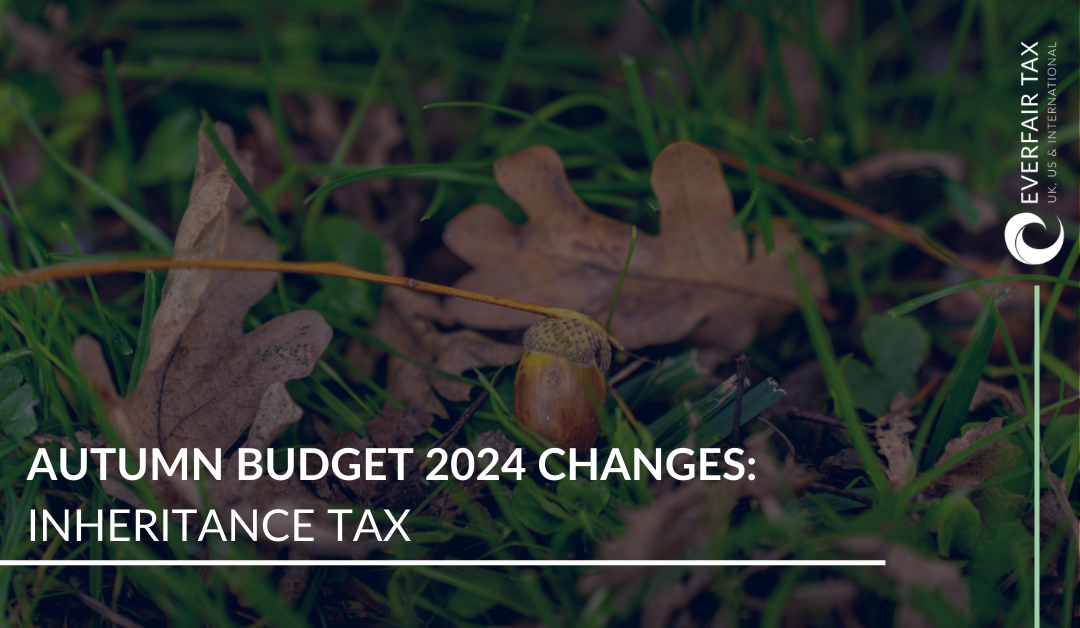US Tax Reform Update
25 February 2022
Tax Reform Under The Biden Administration
US tax reform under the Biden administration remains very much a moving target. Therefore, it is something on which we can provide little in the way of definitive guidance. However, it is perhaps worth a reminder of the current state of affairs, insofar as it might impact US taxpayers living overseas.
It is fair to say that many of the proposals originally put forward have been heavily diluted, or dismissed altogether. There are still some key points worth noting.

Income Tax Rates
The Biden tax plans proposed an increase in the top rate of Federal income tax from 37% to 39.6%. Reverting to the situation as it was before former President Trump’s tax reforms. This increase is not included in the bill passed by the House of Representatives.
There were also proposals to increase in the rate of tax applied to long term capital gains, which have not made it into the final bill passed by the House.
For most taxpayers, this means that there will be no significant change to the tax rates applicable to them.
Surtax
Despite the removal of the proposed changes to tax rates, the House bill does contain a provision imposing a 5% surtax levied on an individual’s income in excess of $10m. ($5m for married persons filing separately, $200,000 for an estate or trust.) Plus, an additional 3% on income in excess of $25m. ($12.5m for married persons filing separately, $500,000 for an estate or trust.)
This proposal creates a tax charge, which is unlikely to be offset by credits for foreign taxes paid. Thus, would result in a genuine double-taxation issue.
Foreign Tax Credits
One change included in the House bill, which will be of considerable significance to US taxpayers living overseas, is a proposal to scrap the carryback of excess foreign taxes effective for tax years beginning after December 31, 2022.
Under current rules, if a taxpayer has paid more foreign tax than they are able to utilise for a tax year, they are able to carry the excess back to the previous year if there is scope to make use of those taxes in that year.
If the bill does pass in a form which contains the withdrawal of the carryback provision, it will mean a renewed focus for US taxpayers overseas to carefully plan the timing of their foreign tax payments to prevent unwanted double taxation problems.
State and Local Tax
The House bill does contain some good news for those subject to State and Local taxes in the US. Since 2018, the deduction allowed for such taxes for Federal income tax purposes has been limited to $10,000. The House bill includes an increase in that cap to $80,000 ($40,000 for married persons filing separately).
Net Investment Income Tax
As expected, the 3.8% “Net Investment Income Tax” originally introduced with the Obamacare provisions is to be expanded should the bill get passed in its current state. The extension of this tax would see it applied to business income for taxpayers whose income exceeds certain thresholds.
Gift and Estate Tax
There had been much talk of changes to the unified credit for gift and estate taxes, which currently stands at $11.7m per person. It is notable that there is no provision in the House bill which makes any reduction to this amount.
Summary
With the President himself admitting that these tax reforms are unlikely to be passed anytime soon, and with resistance from key Senators, it would be no surprise to see further changes (and, no doubt, delays) to the bill as it makes its way through the Senate and on to Mr Biden’s desk. This is therefore something to keep an eye on over the coming weeks, and maybe even months.
Written by Matthew Edwards

News
For updates featuring tax changes, reminders for deadlines, pointers on how to maximise your accounts, and information on Everfair Tax and their activities: you need look no further than our news & resources pages.
Contact Us
Need some UK, US or International advice?
Contact us now.
Weybridge Office
Ground Floor, 37a Church Street
Weybridge, Surrey KT13 8DG
Tel: 01932 320 800
London Office
40 Gracechurch Street,
London, EC3V 0BT
Tel: 020 3949 5999
Email: info@everfairtax.co.uk


